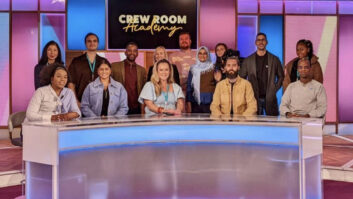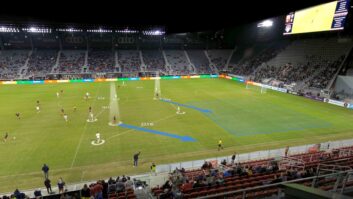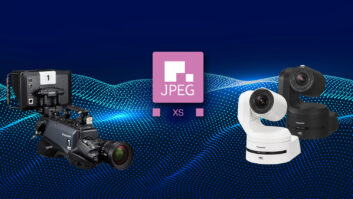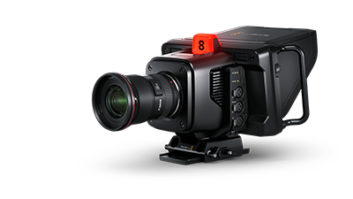Crew Room Academy (CRA), which finds and trains young people aged between 13-21 who would otherwise struggle to hear about the broadcast industry, has worked with a group of students from Barking and Dagenham School to create their own live chat show.
As part of the project, a group of 50 students aged between 14-17 had the chance to work aboard a cutting-edge £4.5 million OB truck from NEP, where they operated cameras, sound equipment, vision mixer, EVS, and more.
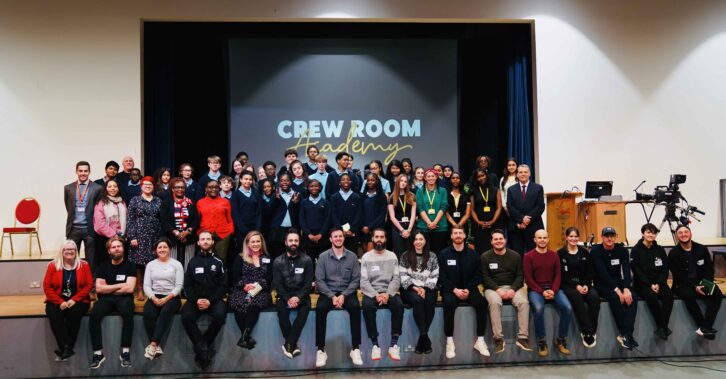
They were involved in directing and sound engineering, as well as operating cameras while the ‘floor’ team were responsible for managing the show and the microphones. The chat show was created exactly as a real-world counterpart would be.
The team at CRA approached NEP with the idea of bringing a truck to a school for a pilot scheme. “NEP loved the concept and agreed on the importance of such initiatives for the industry,” they tell TVBEurope.
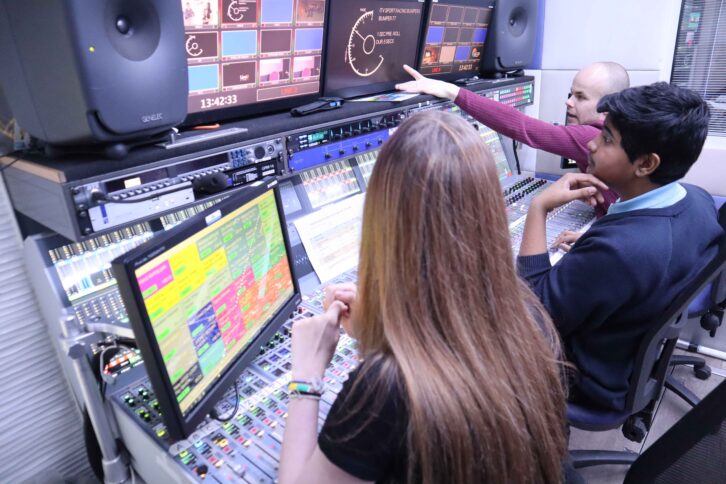
“NEP played a vital role in planning the event, demonstrating the same level of dedication as they do for any standard production. This involved technical recess of the school, coordinating crew schedules, specifying technical requirements for the show, and engaging with students during school assemblies to ignite enthusiasm for the project.”
Year 10 student Zoha Saqib described the project as an opportunity to get out of their comfort zone and learn about the technology used to get an image on the screen. “It inspired me for the future as the opportunity showed me a lot of roles that fit well with my personality that I would have never considered before,” Zoha added.
For Raminta Burauskaite, also a Year 10 student, getting involved with the Crew Room Academy’s Schools Broadcasting Pilot helped to shed some light on all the different roles available in the TV industry.
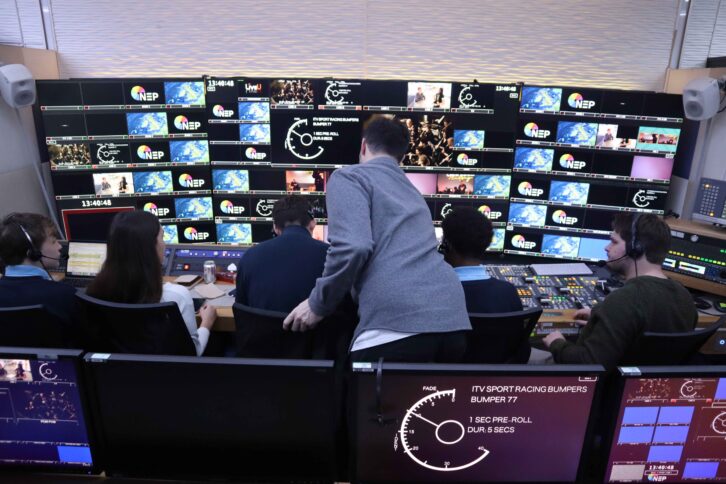
“I did not know all of the roles behind the TV camera before I got involved, the only ones I knew were that there were cameras, lighting, some buttons and microphones involved,” Raminta explains. “Now I know that there are rooms that have so many buttons to switch from screen to screen when displaying on a TV and watching from home.”
“What I learnt during the project is the teamwork that is included to be able to make a really good piece on TV,” continues Raminta. “I learnt that communication is really important, for the TV presenter, the people at the station and those operating microphones, lighting, cameras, screens, etc. to work well together.”
Crew Room Academy is aiming to expand its Broadcasting Pilot programme to run monthly over a 12-month period across various locations in the UK, specifically targeting the most underprivileged areas.
“The success of the CRA Roadshows hinges on a holistic industry-wide approach,” the team say. “Once the monthly roadshows begin, the demand for additional outside broadcast trucks, equipment, and skilled crew will be paramount. Moreover, financial sponsorship is essential for the Academy to continue its impactful work.”
Find out more about Crew Room Academy here.
